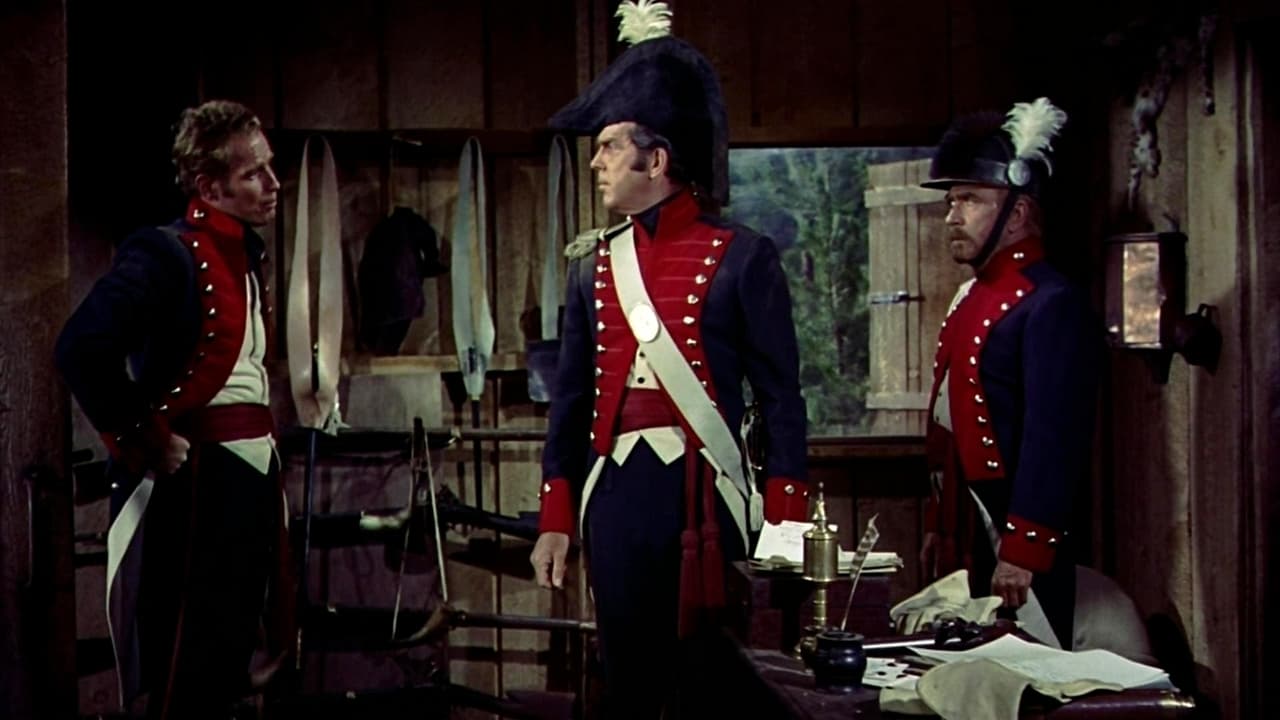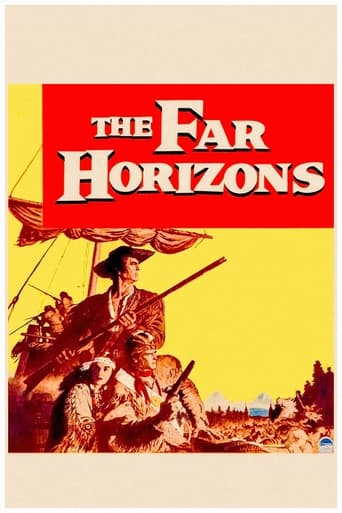

Overrated
... View MoreI like movies that are aware of what they are selling... without [any] greater aspirations than to make people laugh and that's it.
... View MoreThe movie's neither hopeful in contrived ways, nor hopeless in different contrived ways. Somehow it manages to be wonderful
... View MoreThe thing I enjoyed most about the film is the fact that it doesn't shy away from being a super-sized-cliche;
... View MoreI thought it was appropriate to reflect on the following issue, "Is historical accuracy relevant to the quality of a film?" If it is manufactured to provide a true representation of history, maybe so. But if it as manufactured as an entertainment vehicle, maybe not.As a piece of fiction, I believe this film to be one of the finest works of western lore ever recorded. It appeals to both men and women. It promotes ethical values. And it fills the viewer with the full range of emotions that it is expected to.I won't waste your time with the details of the plot, you can find that by the ton here. All I can tell you is that I believe that anyone who is willing to invest the time will absolutely love this.
... View MoreIn 2011, "Time" magazine listed this as one of the 10 historically misleading films! As a retired American history teacher, it's pretty obvious what I think about the film!! Some of the ridiculously wrong portions of the film include a romance between Clark and Sacagawea (she was pregnant and married to Charbonneau in real life) as well as having the Donna Reed play this lady!! It's hilarious hearing her, with her perfect diction and Midwestern accent, playing a native. So how do they make her look like an Indian? LOTS of paint and a wig! I think Divine would have been about as convincing (and a lot more entertaining)!! Despite this romance NEVER occurring, it is the main focus of the film! And, despite the nasty natives in the film, for the most part, the tribes the expedition encountered were very peaceful.If you can completely ignore the film's MANY inaccuracies, it is a very nice looking but dull film. The color is amazingly nice--and has that nice 1950s color scheme. It also has many lovely location shots and is HUGE in scope. And, if you ignore most of the details, the film did get the gist of the actual story! There were folks named Lewis and Clark and they did explore the western portion of the United States. As for the acting, it was generally good, but Fred MacMurray didn't seem to have a lot to do but scowl. Poor guy. And William Demarest sounded VERY peculiar--with an accent that came and went and seemed like it was part Irish, part Scottish and part....God knows! Heston and Reed were fine.Note: Although the film is VERY pretty, sometimes the images are blurry. Apparently this is caused by differences in shrinkage rates of the color strips put together to make a full-color film. In other words, the red or blue layer might shrink at differing rates in portions of the film--giving a few scenes an odd look today.Another Note: Films about this expedition neglect to mention that not too long after it was complete that Captain Lewis committed suicide! This dark event was apparently the result of his lifelong struggle with clinical depression. Pretty sad....
... View MoreFred MacMurray and Charlton Heston portray Lewis and Clark, famed historians who explored the Louisianna Territory as per the instructions of President Thomas Jefferson. This plays very much like a cowboys and indians type of actioneer, but without actual cowboys. We also get a fabricated (so I've read) side love story between Clark (Heston) and lovely squaw Sacajawea (Donna Reed!!), the woman who helped lead the way during the discovery. In this story, MacMurray is the more laid back and serious leader while his partner Heston is - no surprise - rather cynical and the Wild Card of the two. Seems like Chuck played these parts constantly in the first half of this decade. It's always been odd for me to go backwards in time and see Fred MacMurray in straight films, as I grew up with him primarily as the dad from TV's sitcom MY THREE SONS. Here he shares screen time with William Demarest , who was also in the TV show as well. Demarest seemed miscast to me here though, cast as an 1800's sergeant. **1/2 out of ****
... View More"The Far Horizons", made in 1955, is based on the 1803 to 1806 Lewis and Clark expedition to discover a water route from St Louis to the Pacific ocean. It is a nice vehicle for the three stars of the movie.Fred McMurray had already made 70 movies, and Donna Reed 35 movies, when they made this one. Charlton Heston had only made 13 prior, and a age 30, this one was made right before he became a giant star in the "biblical" series of movies.Shortly after this movie, McMurray went on to star in the TV series "My Three Sons", and likewise Donna Reed in the "Donna Reed Show" TV series. In this movie, at age 34, she plays the teenage Sacajawea, and does it very well.Recall that in the 50s most western movies played on the "savage Indian" theme and this one fits that description too. The writer and director took lots of "literary license" with the Lewis and Clark story so it is not to be considered historically accurate. Still, it gives a good, meaningful dramatization of a great historical event in the USA.In addition, most of the journey filming was done at or near the original Lewis and Clark trail, and the movie contains great scenery of mountains and rivers.Overall I found the movie very enjoyable, 7 of 10, and fun to watch such veteran actors in a movie almost 50 years ago. And especially since the USA just this year (2000) released the new one-dollar coin commemorating Sacajawea.
... View More